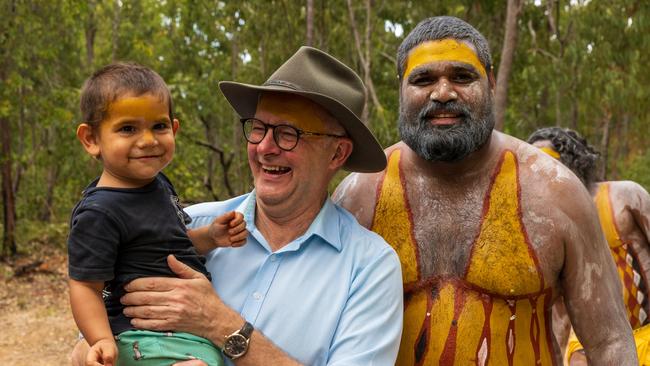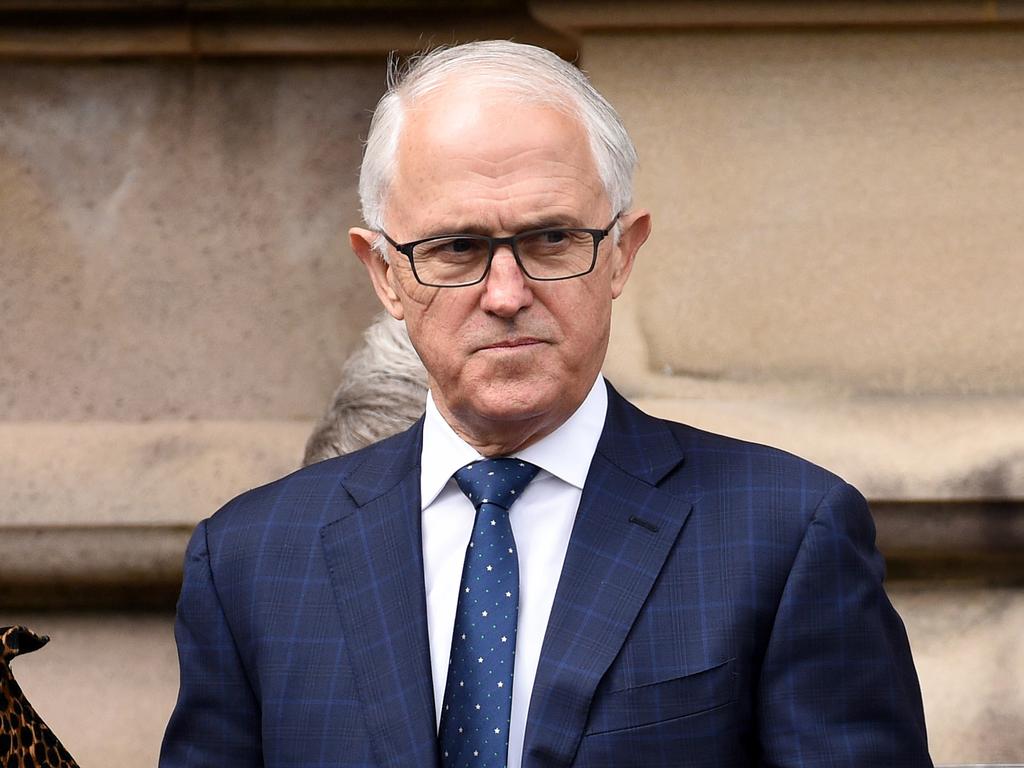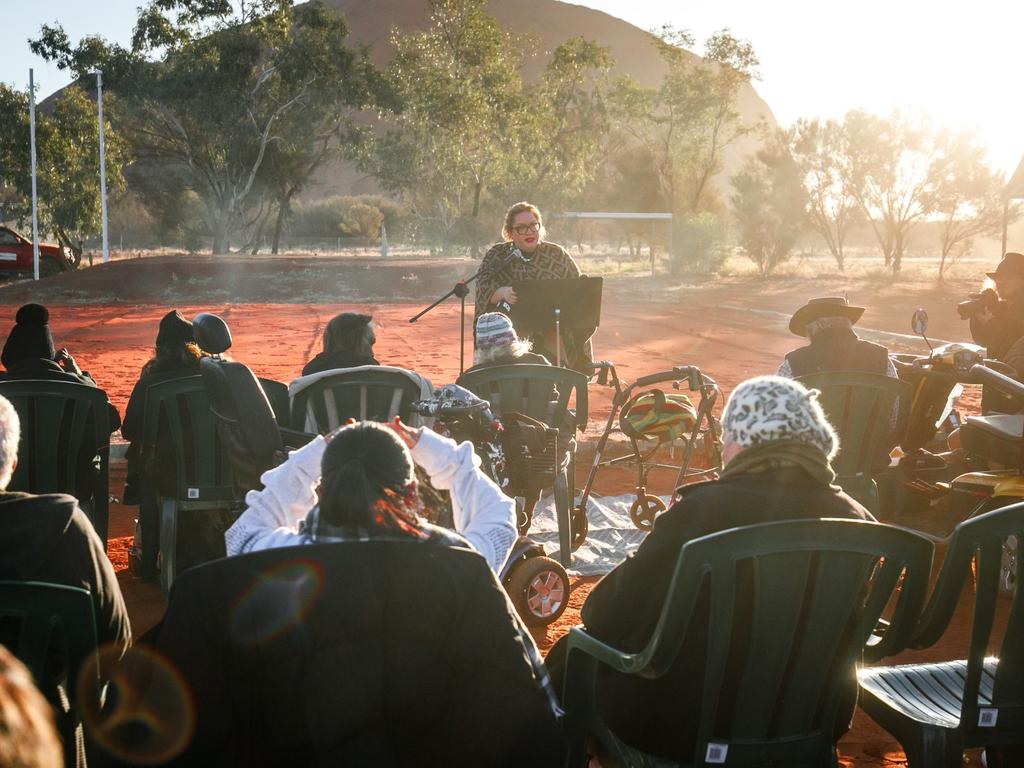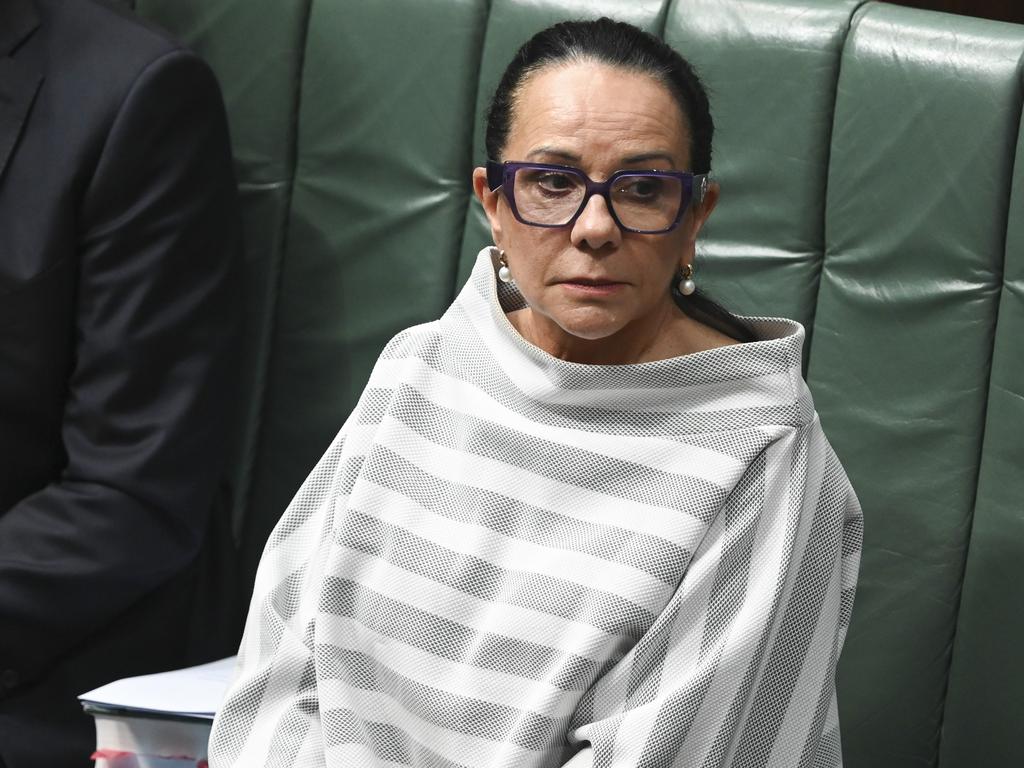Yes, settling on an Indigenous treaty is the right thing to do
Of course there should be a formal treaty. Not having one means the colonisation of this continent occurred without official recognition of Aboriginal people.

Unless something changes dramatically before the referendum, due later this year, it will surely fail. Albanese has rejected delaying it to try to rebuild support.
Harry S. Truman once said “If you can’t convince them, confuse them.” While that certainly is the prescribed tactic of voice opponents, advocates unwittingly have adhered to the same script. Few Australians understand what an Indigenous voice to parliament entails, much less why it needs to be constitutionally enshrined when it can be legislated. If the referendum question were merely to include Indigenous recognition in the Constitution it would succeed in a canter, much like the 1967 referendum on Indigenous rights did. But crafted as a voice it raises more questions than it answers.
Now the No case has another meaty scare campaign it can tap into ahead of the vote: that the voice (whatever it is) is a precursor to a treaty. Polls by JWS Research and Essential in 2016 and 2019 respectively found 59 per cent of voters supported a treaty with Indigenous Australians, but I suspect that figure would be much lower today. The No campaign certainly thinks so.
Albanese wants to dismiss links between the voice and a treaty as a red herring. It is anything but. In May Albanese was asked if the voice would lead to a treaty and truth-telling. He said “they are very much a part of the next phase”. Yes, they are. The Uluru statement calls for the voice, once in place, to be followed up with a Makarrata commission that would oversee the crafting of a treaty.
Don’t take my word for it, or the demands explicitly spelled out in the Uluru statement. Not that long ago Albanese said: “One of the things that a voice to parliament would be able to do is talk about Makarrata, the need for agreement-making and coming together after a conflict.” In other words, the voice is the end of the beginning, not the beginning of the end when it comes to reconciliation with Indigenous Australians.
Plenty of advocates for the voice also have spruiked the natural next steps towards a treaty once the voice is in place. Thomas Mayo, who sits on the board of Australians for Indigenous Constitutional Recognition, said: “We need the power of the Constitution behind us so we can organise like we’ve never organised before.”
He also co-wrote The Voice to Parliament Handbook and hopes it is followed up with “reparations and compensation”, important components of any formalised treaty. While Albanese has implored the media not to conflate the views of voice advocates such as Mayo with the debate at hand, not doing so would be a dereliction of journalistic duty.
The “what comes next” discussion is absolutely relevant for anyone casting an informed vote.
Ideological opponents of the voice encouraged by the contents of this opinion piece so far might want to avoid reading any further. Because it just so happens that I’m in favour of a treaty, which is therefore a reason to vote Yes for the voice even though I don’t believe it needs to be constitutionally enshrined. Why the brains trust pushing for a constitutionally enshrined voice didn’t advocate for a referendum solely about constitutional recognition – thereafter legislating the voice instead of constitutionally enshrining it – is beyond me. The path taken has put the entire cause of Indigenous rights unnecessarily in harm’s way, including the natural next steps.
Of course there should be a formal treaty. Not having one means the colonisation of this continent and the 1901 establishment of nationhood occurred without official recognition of Aboriginal people despite thousands of years of residency on this continent. Not having a treaty allows otherwise unifying welcome to country ceremonies to appear inherently divisive, with references to sovereignty never having been ceded.
When I first heard such references in welcome to country ceremonies I wasn’t sure they were appropriate. But I now realise for Indigenous Australians it is an understandable sentiment given the lack of official recognition they have received for much of the past 250 years. Only a treaty can address this. If the voice fails it will set back such efforts for decades.
While talk of treaties probably helps the No camp muddy the debate, complicating the messaging of the Yes side, that is unfortunate because a treaty should be seen as a worthy goal. The Yes campaign has already overcomplicated what should have been a simple proposition: support for recognition of Indigenous Australians in the Constitution, leaving the rest to the parliament. The voice campaign is serving as a reminder of just how hard achieving change can be. Republican campaigners learnt that lesson the hard way nearly a quarter of a century ago. But conservatives understand change is difficult for good reason: so it isn’t entered into lightly.
The Yes campaign is better funded and enjoys the backing of high-profile individuals and organisations, so perhaps it can turn around the referendum’s declining support. But it needs mainstream Australians to get on board. That’s democracy, like it or not.
While we are in a debate about giving Indigenous Australians a formalised voice to parliament, it is worth pointing out that under our constitutional arrangements anyone living in a territory rather than a state has their vote for or against referendum questions counted as only part of the national total. For a referendum to pass it needs the support of a majority of Australians in a majority of states.
But anyone living in the Northern Territory or ACT doesn’t have their votes counted as part of a state’s total, effectively halving the value of their say. And more than 30 per cent of the NT population is Indigenous. The irony that so many Indigenous Australians won’t get an equal voice when voting in a referendum to formalise an Indigenous voice to parliament should have received more attention than it has.
Peter van Onselen is a professor of politics and public policy at the University of Western Australia and Griffith University.








This weekend Anthony Albanese is addressing the Garma Festival, a crowd positively disposed towards his proposed Indigenous voice to parliament. Despite the Prime Minister’s best efforts, however, the Yes campaign continues to flounder among mainstream Australians. Albanese has admitted support for his referendum to give Indigenous Australians a voice in the Constitution is trending in the wrong direction, which has been confirmed by recent opinion polls.